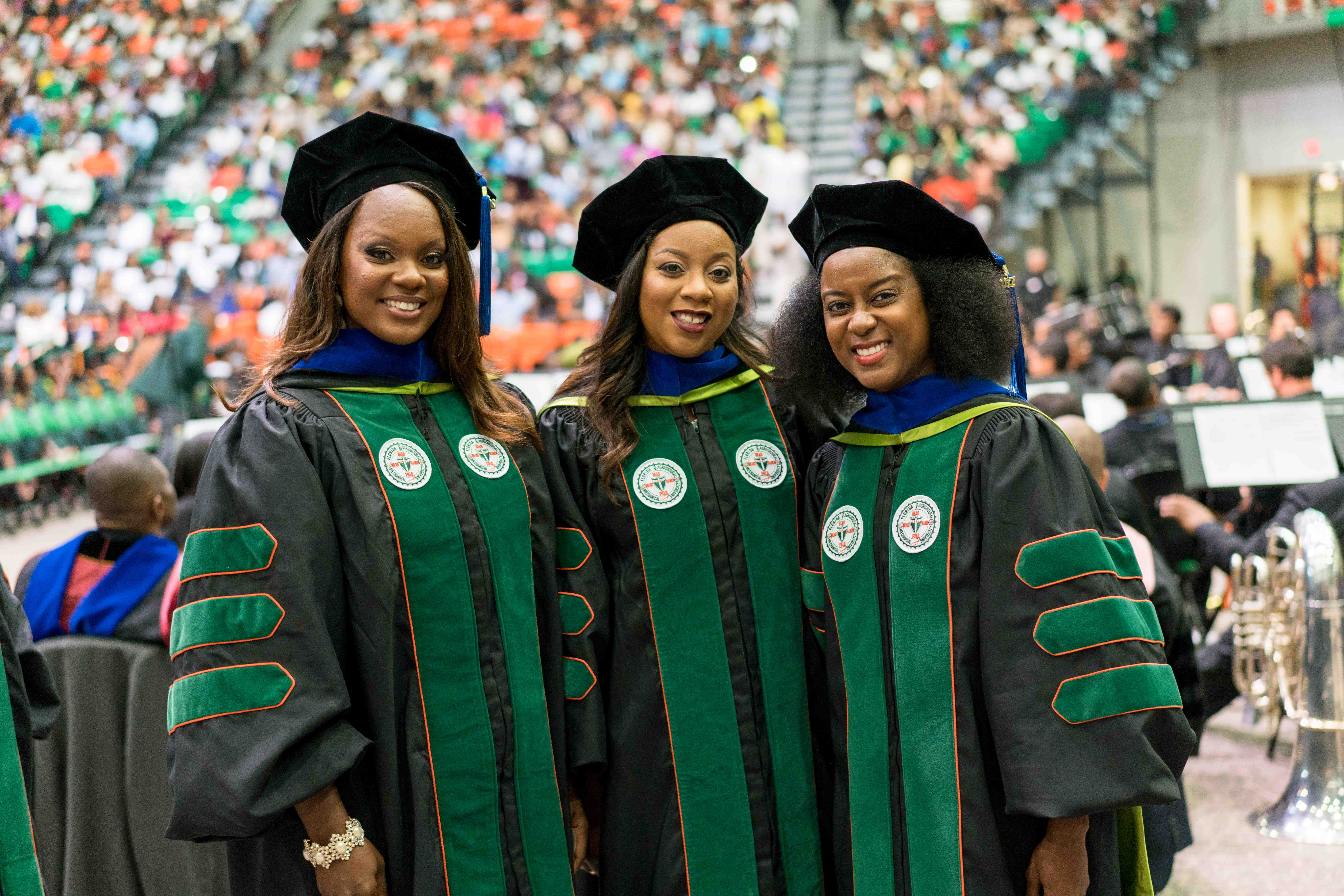Special to the Times

Three Florida A&M University (FAMU) female doctoral students, who are also best friends, recently received their doctorates in engineering. Marcella Carnes of Birmingham, received her doctorate of philosophy in civil engineering with a concentration in structures.
The students endured setbacks, including the loss of a classmate and overcame financial hurdles to ensure that they join the next generation of engineering leaders who will help close that gap.
According to the National Science Foundation (NSF), minority women comprise fewer than one in 10 scientists and engineers in the United States. Studies from researchers around the world reveal that one anecdote to this disparity is to ensure there are more role models in underrepresented communities.
Scholars
On April 29, Miami native and Fulbright Scholar Renee Gordon received her doctorate of philosophy in mechanical engineering; Miami Beach native and Winifred Burks-Houck Professional Leadership awardee Shannon Anderson received her doctorate of philosophy in civil engineering, with a concentration in environmental engineering; and Carnes received her doctorate as well as an NSF International Research Experiences grant.
Each earned their doctorate degrees under the guidance of FAMU’s School of Graduate Studies and Research and through support as participants in the FAMU-FSU College of Engineering Title III Funding Program. They are considering next steps including job offers and research opportunities. In the meantime, Gordon and Anderson will spend the summer teaching and helping to recruit the next generation of engineering students, while Carnes prepares for her wedding.
“We realize that we’re breaking barriers when it comes to minorities and also women in STEM fields,” Gordon said. “I feel like it’s really important for our young black and brown boys and girls to know that they can aspire to be whatever they want to be including engineers.”
Carnes added, “I feel proud to be an African-American woman in the STEM fields. There’s not that many of us (women). We’ve been challenged because STEM is male dominated, (but) we are examples of the things that you can set your mind toward and finish. We are no longer ‘Hidden Figures.’ We have definitely been revealed.”
In addition to inspiring the next generation to break barriers, the trio wants to encourage them to pursue careers that will improve our way of life. They say the best place to develop a career that makes a difference is at FAMU.
“Not only did we receive the financial support, but we also received emotional support; we received the bond that we share in this community and a family that’s striving to achieve the same goal. We have a shoulder to lean on when we feel like we can’t move on,” said Carnes, who also enjoyed unique opportunities when she studied abroad in Poland as a part of a program that allowed her to study civil engineering at campuses in four countries.
Mentors
Gordon expressed the important role that mentors like her major professor Peter Kalu, Ph.D., and the engineering school’s Title III Director Reginald Perry, Ph.D., played in her successful matriculation.
“FAMU’s programs have been a tremendous help in assisting us both academically and professionally. The faculty and staff have been amazing,” she said.
Gordon also recalled a time when FAMU’s Interim President Larry Robinson, Ph.D., personally stepped in to help her complete an important component of her research experience.
“I had an abstract and paper accepted for presentation at a conference in Cape Town, South Africa, and I went to different departments looking for support for travel there. It was such a huge opportunity. I told Dr. Robinson what I needed, and without batting an eye he said ‘yes, ‘and it was done,” she said. “Through that opportunity, I was able to receive a Fulbright fellowship, and it was life-changing. I spent seven to eight months in Nigeria conducting research and teaching collegiate level students.”
Motivated
In 2014, they suddenly lost colleague Tarra M. Beach, an environmental engineering doctoral candidate. She passed away before she received her doctorate. Her goal was to “contribute to the sustainability of the environment and work on STEM education with underrepresented children.”
“She would have been the first woman to graduate with her engineering Ph.D., from the Title III program at FAMU. So, we were next in line to just follow her example, her dedication, her passion and drive,” Anderson said.
Beach’s legacy helped motivate the young women to complete their goals.
“Losing Tarra was very hard. She was driven toward education. She was so close to finishing and to know someone worked that hard and not necessarily reaped that benefit was emotionally draining for us,” Carnes said. “But it also let us know we are blessed to be here and that we can move on. Her legacy is that she believed in education and through us, and all women, she is here. Through our eyes, she has her Ph.D., because she was such a scholar.”




